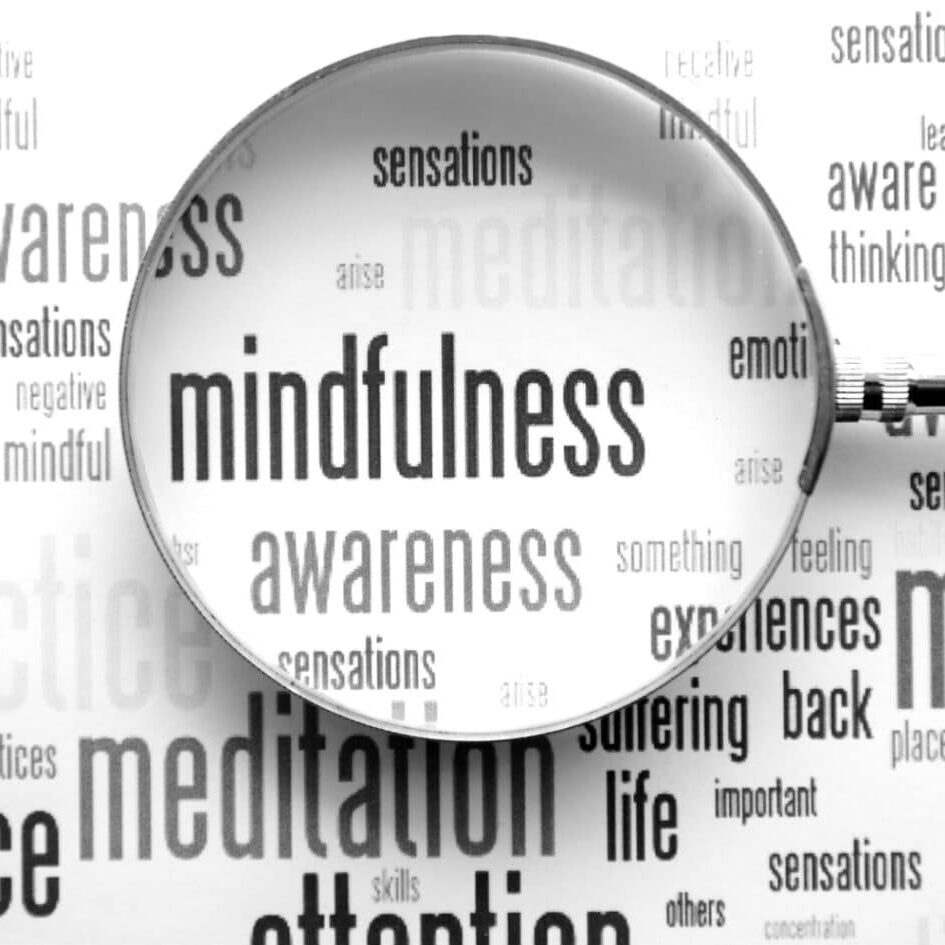Having trouble with your portion sizes? There is more to your appetite than your will power
Are you having trouble controlling your portion sizes and how much you eat?
- Do you limit your portions in the day but then overeat later at night?
- Do you play a daily hoarding game where you try to limit the amount of food you consume, only to end up overeating by day’s end?
- Are you feeling a bit out of control with your food intake?
If you are having trouble “controlling” how much you eat, my guess is that you are looking in the wrong place to find a solution. Hear me out.
What actually controls our appetite?
While we are smart, goal-setting people, we are biological beings first. We think all we need to do is set goals with our sophisticated thinking brains, and our bodies will cooperate. But most people’s experience is something different. When people limit their food intake, they find themselves thinking about food, they are more sensitive to impulsive food choices in the moment, their portions feel bigger than what they believe they need, they have a hard time stopping eating and more.
Our appetites are governed by three regions in our brain
- Appetite center located in the hypothalamus
- Reward center located in the meso-limbic region of our brain
- Decision maker located in the cognitive lobe of our brain.
Appetite Center
The system for managing our appetite is controlled by a brain structure called the hypothalamus. When activated, this area stimulates a series of reactions and release of hormones that result in the physical sensations of hunger. This triggers food-seeking behaviours.
Our nutritional status, food availability, taste, smell and food preferences all influence this part of the brain. When we access food, this area of our brain quiets down. Think of this system as our physical and survival need for food. This system aggressively defends our bodies against fat loss.
Reward Center
We all eat for reasons beyond just physical hunger. Food provides our body fuel…and it also provides us with pleasure and reward. This kind of reward-based eating is also associated with seeing, smelling and eating food and is based on our learned experiences. The release of certain chemical signals in our brains results in us feeling gooooooood. Think of this system as our pleasure and reward-based eating…this is eating for non-physical reasons. This is absolutely normal.
This “mesolimbic” part of our brain is what can cause us to crave food, and to enjoy food even when we are full. You have likely experienced this while at the movie theatre. You may have eaten before heading to the movies, but then are greeted by the intense, irresistible smell of popcorn! It is enough to override your body’s fullness.
These two appetite centers – appetite and reward center – “talk” to each other. This communication is, in part, governed by hormonal signals in our body. These two centers are also guided by a third center in our brain – the “decision maker”.
Decision Maker
The decision-maker or goal-setting part of our brain is what we use when deciding when and what to eat. This “executive” is in charge of overriding the primal food behaviours driven by our hedonic system. This decision-maker works best when our bodies are rested, hae less stress and more support to help deal with the day’s events.
When our decision-maker is working at its best, we can create an intentional pause before we eat, slowing down our food decisions from mindless to mindful. We can check what it is that we need. When this decision-maker is tired, overworked and/or over-stressed, we make automatic, mindless decisions that may be different from our goal.
There is more to your portions and appetite than your will power
We assume that the “cognitive” part of our brain is what drives our eating behaviours….but as you can see from above, it is our complex biology and learned associations that actually drive our eating. And like any part in our body, the function of each of these systems can be impaired. The communication between these three regions can get disrupted.
How can I support (& not fight with) my appetite?
Our bodies are complex machines! We have the ability to influence our bodies, but we are not complete masters of our domains.
8 ways to support your appetite
- Get enough sleep – a better day with food starts with sleep the night before. Inadequate restorative sleep results in altered hormones which impacts our appetites and how we eat.
- Focus on eating more natural foods as the foundation for your diet. When we focus on eating (mostly) foods that your grandparents would recognize, we support our bodies with regulating our appetite. Foods that are more processed and refined are much more difficult for our bodies to monitor and balance.
- Surround yourself with food options that are nourishing and satisfying. What is in your environment forms the basis for your food decisions and possibilities. Having only joyless food options are not sustainable.
- Eat at regular, predictable times throughout the day – Providing your body with consistent fuel throughout the day helps to keep our appetite system “happy”, making us less vulnerable to the influences of our reward center.
- Eat enough food. The goal is not to hoard our calories all day. The goal is to provide our bodies with fuel throughout the day so we have the energy we need for our day.
- Include enjoyable movement as part of your day. Our bodies are meant to move. Enjoyable movement can help sensitize us to the effects of certain hormones involved in managing our appetite. This is not about forcing yourself to exercise. This is about finding ways to move your body because it feels good and you feel better when you do.
- Add mindfulness to your approach with food. Slowing down before eating can help you check in with your body to identify the kind of hunger you feel and to discover what would be most helpful to you in that moment. Taking a non-judgemental and curious approach with your food will also help you to notice the situations and circumstances where your eating seems to go “sideways”.
- Manage your emotions in ways beyond just food. Eating is a normal and natural response to certain emotions – we all do it. When food and eating is your only way of managing your emotions, this is where we get out of balance with our body’s natural weight for your current age and stage of life.
If you find yourself struggling with managing your eating, please know you are not alone. Many of us struggle with food. You may need more support and intervention to help you feel better. Know that you have options beyond white knuckling through the unsustainable, restrictive eating patterns.
References:
Lau DCW, Wharton S. Canadian Adult Obesity Clinical Practice Guidelines: The Science of Obesity. Available from: https://obesitycanada.ca/guidelines/science. Accessed [Nov 2, 2021].
Tagged in: appetite, biology, Calgary Dietitian, Calgary Nutritionist, cravings, fullness, hunger, midlife, midlife nutrition, midlife wellness, neuroscience, Over 40, portion size, weight management
5 Comments
Leave a Comment


Welcome to the Energize Nutrition blog, where we share evidence-based nutrition content, designed to empower people’s midlife. Take a look around to find information on feeling your best.
If you need more individualized support, reach out to set up a free discovery call with Kristyn Hall.

Battling chronic hunger, poor energy, or inflammation? Discover what this powerful ingredient is and why it might be the solution!










Excellent reminders Kristyn! It’s great to be reminded of the types of hunger and communication between our brain and stomach. Plenty of rest, mindful eating and body movement go hand in hand. Thank you!
Thank you for your comment! A balanced and health-supportive lifestyle can help our body, including our brains, work well together.
Oh yes. Portion control is my biggest challenge. Once I start, it is hard to stop.
A good article.
Thank you Kim for your comment. Your experience is common. In widening our lens of understanding of what all influences our appetite, I hope that your experience with portion control can soften.
I wish my appetite centre was less aggressive in its defence of fat!
Great post, Kristyn, thanks.